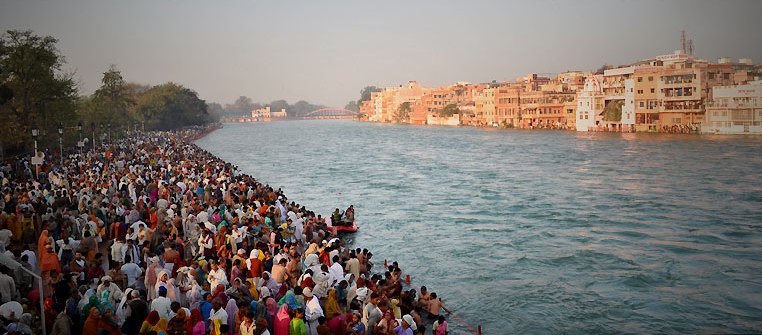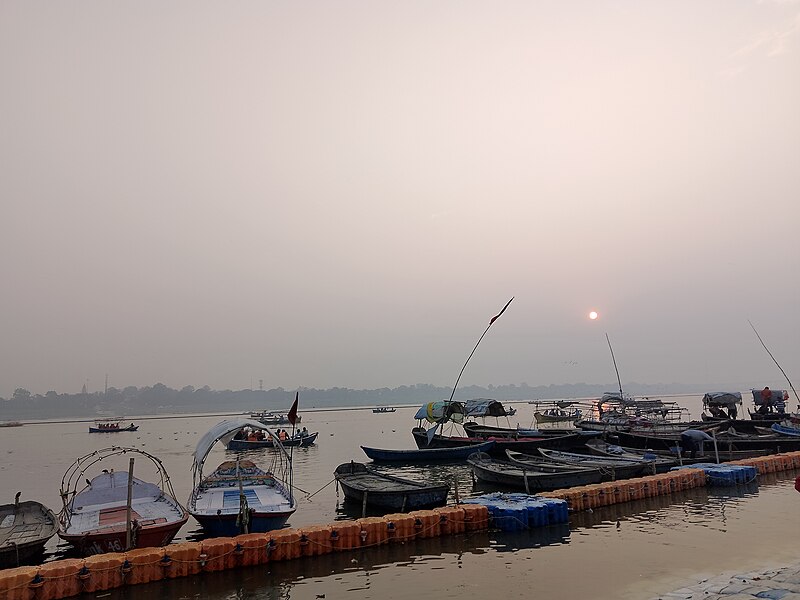Allowing Kumbh Mela is case of excessive religiosity
By allowing Kumbh Mela during Covid surge, sanskaris are not helping but sickening the Hindus
Rajesh Dikshit | April 14, 2021 4:42 pm

Kumbh Mela 2010, Haridwar (Photo courtesy: https://upload.wikimedia.org/)
Excess of everything is bad, and that includes religious faith. Unfortunately, sanskaris are loath to recognize this fact; this is evident from the fact that they permitted Kumbh Mela in Haridwar. The permission is at odds with the denial of gathering at the Nizamuddin Markaz.
This is not to say that like the Hindus, the Muslims should have been allowed to congregate. Quite the contrary, no gatherings should be allowed at this time when the second wave of Covid-19 is surging.
Uttarakhand Chief Minister Tirath Singh Rawat, however, doesn’t think so. He believes that Kumbh Mela should be allowed but not prayers at the Nizamuddin Markaz: “There should be no comparison between Kumbh and Markaz. The Markaz was held in a closed space, in a Kothi like structure whereas the Kumbh is being held in the open on the sprawling ghats of the Ganga,” he said on a talk show organized by the Hindustan Times.
Quite apart from the difference between the indoor venue and the sprawling ghats, in his reckoning there is also a divine reason that the coronavirus won’t spread at Kumbh Mela. Chief Minister Rawat said, “Most importantly, Kumbh is at the bank of the River Ganga. Maa Ganga’s blessings are there in the flow. So, there should be no corona.”
It seems that Maa Ganga’s blessings haven’t been enough to check the spread of the deadly virus, for between April 10 and April 13, as many as 1,086 corona positive cases were reported from the mela. Come to think of it, the festival will continue till the end of this month; 100 to 150 million people are expected to attend the mela.
It may be wrong to accuse Maa Ganga and other deities of not being compassionate enough; sometimes the gravity of human folly is so large that even divine support is unable to bear it. Allowing Kumbh Mela at a large scale is one such foolhardy decision.
It seems to be a pro-Hindu decision. It is as if the sanskaris are telling the Hindus: Look, we don’t stop Kumbh Mela even at this time of the pandemic. But is it helping the Hindus? No, it is sickening them instead—and may continue do so in the future as well. There is also the danger of many devotees returning home infected but asymptomatic, further steepening the surge.
Excessive religiosity hurts people of all faiths. For instance, extremely devout and rich Muslims in Saudi Arabia demand “halal organs” when they need them. Halal organs are kidneys, liver, etc., of Muslims which have not been exposed to alcohol, pork, and other non-kosher items in Islam. China meets the demand—by forcibly taking these organs from the bodies of Muslim political prisoners.
So devout Saudis remain virtuous and pious—at the expense of the health or even life of their coreligionists.
Such are the perils of excessive religiosity.






























